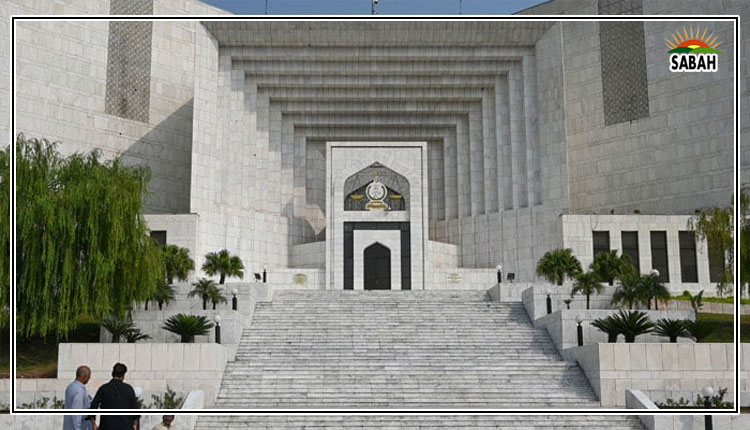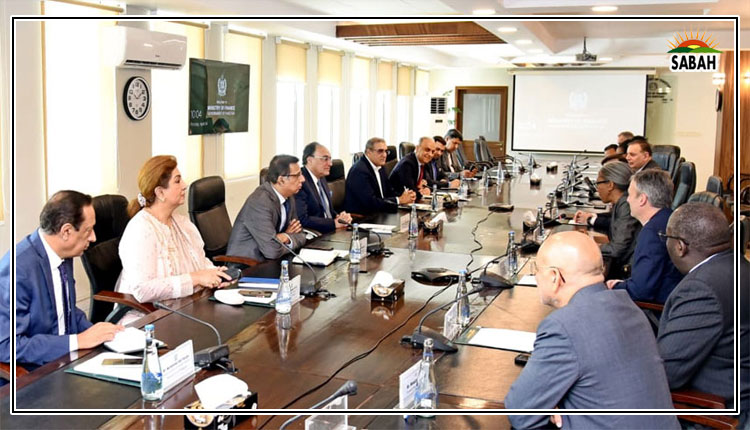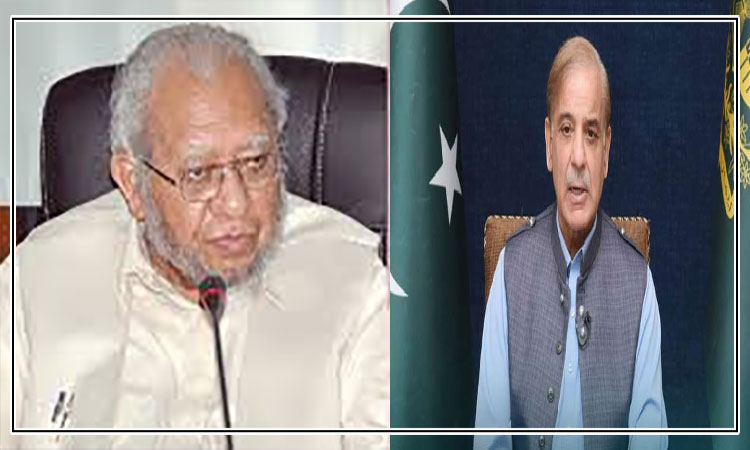How Pakistan wasted Guterres and Geneva…Mosharraf Zaidi
Yesterday, the Islamic Republic of Pakistan, along with the United Nations, co-hosted a conference on the rehabilitation and reconstruction of the countrys flood affected areas.
The superfloods of 2022 were historic in nature and the blame for the kind of climate change that caused these floods lies largely with the high-emissions economies that have grown at the expense of the planets more vulnerable places: Pakistan is and will remain one of those places for the rest of your life.
Climate vulnerability is not going to go away, no matter how many conferences Pakistan hosts. Perhaps, therefore ironically, Pakistans 2022 superfloods Geneva conference was in fact not a conference about climate change but rather a conversation between Pakistan and the supposed donors that will contribute to the effort to rehabilitate, rebuild and reconstruct flood damaged infrastructure in the country.
Any international conference that focuses squarely on Pakistan should be seen as a good thing, but it would be disingenuous to line up overly saccharine congratulatory messages for the Pakistani government for co-hosting the Geneva conference. The fact that this conference took place is largely down to the deep respect and compassion for the Pakistani people of one individual. That individual is the former head of Socialist International, the former prime minister of Portugal, the former United Nations High Commissioner for Refugees (UNHCR), and the current UN secretary general, Antonio Guterres.
Why does Guterres have this unique and rare relationship with the Pakistani people? For a decade, between 2005 and 2015, Guterress work as the UNHCR boss brought him to Pakistan numerous times. The Pakistani experience of hosting Afghan refugees (despite the efforts of mindless civilian and military bureaucrats to undermine it through collective punishment for Afghans whenever Islamabad and Kabul disagree) is a global standout for its depth, its duration and its consistency. It also happens to be the case that Guterres is deeply personally committed to climate change. The Pakistani superfloods of 2022 offered him an opportunity to showcase the intense suffering that climate change is capable of causing.
Combined with his socialist background, Guterress personal sense of compassion for Pakistan is what has driven the continued global spotlight as dim as it has been on Pakistani suffering caused by the 2022 superfloods. As luck would have it, Pakistan also held the chairpersonship of the G-77 during COP27. As the Global Souths premier spokesperson, and amidst what could be interpreted by some as an effort by the international community to offer Pakistan international visibility concurrent to Indias chairing of the G20 this year, Pakistan treaded a rare diplomatic opportunity through the last several months.
The combination of the 2022 superfloods, Pakistans chairing of the G77 and Antonio Guterress intense lobbying for Pakistanis, offered the government of Pakistan the rare opportunity to engage with the international community on an issue that is, for the most part, independent of the Afghanistan centric questions of regional and global stability. This is an important footnote to the events of the last several months, as far as Pakistans international standing is concerned because Pakistani strategists in and outside government (including this one) have spent at least four decades lamenting the cruelty of the geopolitical burden of being a neighbour to the triple threat of Afghanistan, Iran and India.
he lament has always been: why cant the international community engage with Pakistan on something other than Afghanistan, other than terrorism, other than counter insurgency? Why cant the rest of the world engage with Pakistan on something that matters for Pakistanis?
So where were Pakistani strategists in late 2022 and 2023 as Guterres + superfloods + G77 all converged to shine the spotlight on something that matters for Pakistanis?
Since most Pakistani strategists are former military officials, most were busy trying to hide whilst their institution and leadership was being skewered in the carefully curated ecosystem of pro-Imran Khan television talks shows, WhatsApp groups and Twitter spaces. Remember: before the deluge of August 2022, there was the tsunami of the flood of tears in Insafi Pakistan a wondrous place where, prior to the vote of no-confidence, most of the available Pakistani strategic carbohydrates were being consumed to prop up the notion of Imran Khan as the ultimate saviour for Pakistan.
Whatever remains of Pakistani strategicdom beyond Insafi guardrails is an epic mess. Those with even a remote sense of economic cycles and policy know that the Ishaq Dar subsidy now rivals the Tarin subsidy but most are either personally too aggrieved by the Insafi hordes to say so clearly, or with no clear alternatives, are too conscious of undermining an already very weak and vulnerable coalition.
Those with democratic and federalist values writhe agonisingly at the constant attempts by this coalition government to continue to run Pakistan like its predecessor PTI government: a unitary republic where Islamabad plus Rawalpindi plus Aabpara have the agency, legitimacy and capability to run the country (they do not). In all this, the 2022 superfloods have been relegated to Division Three status: neither super, nor floods barely an asterisk, even for those invested in the environment and climate beat.
To top off the lack of coherence and focus across the strategic community, the government must also suffer many self-inflicted wounds, chief among them being a dissonant and disparate cabinet in which one federal minister operates entirely independently of the other and the other operates entirely independently of the next.
The prime minister desperately lacking the support of even his own brother and niece started his term hamstrung by the counterintuitive effort of the Sharifs in London to try to out-Imran Khan, Imran Khan. This desperation continues, as the PML-N London believes it can effectively tackle the hydrogen bomb of inflation that has been detonated upon Pakistans 234 million people, first in the spring of 2022, then again in the summer of 2022, and coming soon, before the end of winter 2022-2023. The instrument it wields in trying to tackle inflation is the late 90s bombast of older-than-they-look dinosaurs roaring valiantly at the IMF and anyone else that dares to point out the unsustainability of Pakistans economic choice matrix.
Perhaps unlike previous tenures for Ishaq Dar, the current tenure is the richest of all. From the moment it began, an already hamstrung Shahbaz Sharif was essentially amputated: the ability to direct the treasury may literally be the only meaningful power that a clever prime minister can squeeze out for herself or himself in a COAS-dominated Pakistani governance landscape. By appointing Ishaq Dar to replace Miftah Ismail, Nawaz Sharif essentially tore off his younger brothers limbs.
All of these dynamics are visible in plain sight. So too is the consistent dissonance between Pakistani ministries, and the wider Pakistani systems capacity gaps on technical issues. The ruling coalition, instead of learning lessons from a dissonant and disjointed post-disaster needs assessment (PDNA) process, has overseen the preparation for the Geneva conference with even less coherence and cogency.
The result? A non-donor, non-floods, non-climate conference that will not address the most urgent issues facing flood victims in Pakistan (food, power and fuel inflation + poor service delivery + shrinking buying power), and that cannot (because of a foundational lack of preparation) serve Pakistan strategic interests.
Perhaps the Geneva conference will exceed expectations and a handful of heads of state or government, or their foreign ministers, will magically appear to lend their support to flood victims in Pakistan. Perhaps some portion of the stated $16 billion flood reconstruction costs (dramatically understating the climate related costs of the floods) will be pledged by donors that magically appear in Geneva. Perhaps in the aftermath of a failed conference, coalition members wont turn on each other publicly, as they often do privately.
In the end, however, the Geneva conference is yet another data point in the rapidly growing pile of missed opportunities that Pakistan will look back and regret as India cements an undeserved perch as a dominant hegemon.
That a distracted, disjointed and disconnected Pakistan could do no better will be scant consolation years from now. It should not be an adequate excuse today either. Pakistans leaders owed this country and its founders much more. In 2023, these failures will accumulate more rapidly and irreversibly than ever before.
Courtesy The News












